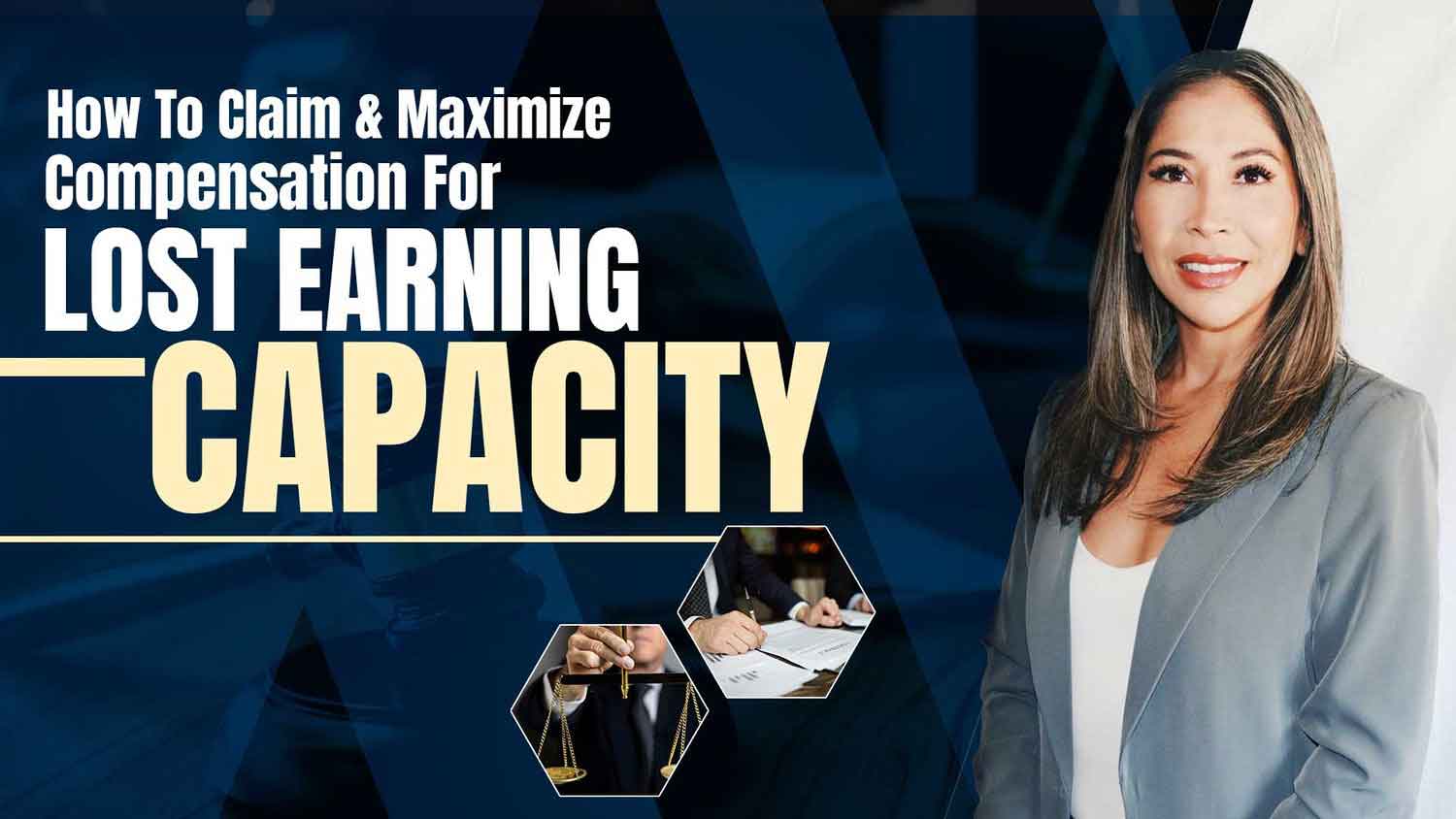
One of the items for which you can receive compensation if a negligent party damaged you and interfered with your ability to work is “lost earning capacity.” It is the anticipated loss of your future wages because of your post-injury reduced capacity for employment. Since “lost wages” refers to the money you’ve already lost due to missing work days, they are distinct.
Here, we describe the California claim for lost earning ability. Contact our skilled personal injury attorneys in San Diego for legal counsel tailored to your case.
How Can I Demonstrate My Lost Earning Potential?
We must determine how much you would have continued to earn if you hadn’t been hurt to demonstrate your lost earning capacity. While you may use forecasts or estimations to determine this amount, the judge or jury will want to know with “reasonable certainty” so your projections must be supported by facts.
Expert testimony is frequently used as proof of lost earning capacity. Professional personal injury lawyers collaborate with a range of experts and professionals who can bolster your claim, such as:
- Doctors and therapists who can determine the severity of your disability and its expected duration
- A vocational expert or an authority in your field demonstrating your potential for future employment, your valuable skills and experience, and the jobs you can apply for after an accident
- An economist or financial analyst who can see income patterns in your industry might help you compare what you might have continued to make in your prior position to what you might be able to make after the accident
- Your pre-accident employer, if any, determines your work output and potential for advancement before the injury.
How Much Compensation May I Get In California For Lost Earning Capacity?
Due to various conditions, the amount compensated for lost earning ability varies greatly. We must take into account factors like:
- Your former job’s salary
- Any raises or promotions you would have gotten
- Your potential earnings after the disaster
- The time till your retirement age
Other lost benefits from your prior work, such as allowances, overtime pay, bonuses, commissions, paid vacation days, and 401k contributions, should also be considered as part of your damages for lost earning ability.
Can A Non-Working Person In California Claim To Lose Earning Capacity?
Yes, an injured person with no prior employment history or who was not working at the time of the accident may nevertheless file a claim for lost earning capacity compensation. Their potential for future earnings, not their past earnings, is what they are being paid for. Additionally, individuals do not need to present evidence of lost wages to claim lost earning potential.
We could reasonably estimate the amount of money your career would have earned had you been able to play your instrument properly, for example, if you were hurt while you were a music student and your accident permanently affected your capacity to do so.
Another scenario is if your accident happened while you were looking for a new employer after quitting your employment as a machine operator. Even though you weren’t working when you were hurt, your prior experience as a machine operator can still be taken into account when filing for lost earning capacity.
Even If My Injuries Are Transient, May I Still File A Claim For Lost Earning Capacity?
Yes, even if your injuries are not permanent, you may still claim lost earning potential. You may be eligible for an award if your impairment has not improved by the time of your settlement or trial. If your handicap is temporary, speak to a personal injury lawyer about your options.
Even If I Can Perform Light Work, Can I Still Claim Lost Earning Capacity?
If your capacity to work has been affected but not lost entirely, then yes, you can file a claim. For instance, you might have been a supervisor in your place of employment before your accident but are now limited to desk work.
If your capacity to work has been affected but not lost entirely, then yes, you can file a claim. For instance, you might have been a supervisor in your place of employment before your accident but are now limited to desk work.
What Is The Californian Time Frame For Filing A Claim For Lost Earning Capacity?
The timeline to be used is for personal injury cases because your claim for lost earning ability is included in your personal injury claim. The general statute of limitations (expiration date) in California for bringing a personal injury claim is two years following the date of the injury. The judge might dismiss your case if you don’t file within two years.
It’s advisable to speak with a personal injury attorney as soon as you can because certain circumstances could limit or lengthen this window.


